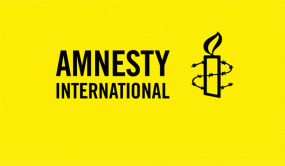The authorities must take immediate and effective action to once and for all put an end to the spate of recent killings of human rights defenders and social and community activists, said Amnesty international today as yet another activist was killed yesterday.
On 11 September, Néstor Iván Martínez, a member of the Afro-descendant Community Council (Consejo Comunitario) of La Sierra, El Cruce and La Estación, and a leader of the People’s Congress (Congreso de los Pueblos) social movement, was shot dead by unknown assailants in a rural part of Chiriguaná Municipality in the department of Cesar. Néstor Iván Martínez had been active in environmental and land rights campaigns in Cesar, and had also campaigned against mining activities in the region.
On 29 August, three leaders of the NGO Integration Committee of the Colombian Massif (Comité de Integración del Macizo Colombiano, CIMA), Joel Meneses, Nereo Meneses Guzmán and Ariel Sotelo, were stopped in the vehicle they were travelling in and shot dead by a group of armed men in Almaguer municipality in the department of Cauca.
In the last week of August, four members of the Awá Indigenous people were shot dead by unidentified gunmen in Nariňo Department, including Camilo Roberto Taicús Bisbicús, the leader of the Awá Indigenous reservation (resguardo) of Hojal La Turbia, in Tumaco Municipality; brothers Luciano Pascal García and Alberto Pascal García, also of the resguardo Hojal La Turbia, who were killed in Llorente Municipality; and Diego Alfredo Chirán Nastacuas, a member of the Awá people, who was killed in Barbacoas Municipality.
According to the Colombian NGO Somos Defensores, at least 35 human rights defenders and social leaders were killed in the first six months of this year.
This spate of killings of human rights defenders, social and community leaders, as well as of members of Indigenous communities, contrasts sharply with the hope being generated in the country as a result of the upcoming formal signing of the peace agreement between the government and the Revolutionary Armed Forces of Colombia (FARC), scheduled for 26 September in Cartagena, Colombia. A formal definitive and bilateral ceasefire and cessation of hostilities between the two sides has been in operation since 29 August.
Amnesty International has repeatedly argued that the main threat to human rights does not emanate only from direct armed combat between the two sides but also from targeted attacks against civilians. Many of these attacks are the result of efforts by various armed groups to control territory, especially those inhabited by Indigenous People and Afro-descendant and peasant farmer communities, in order to exploit their lands for economic reasons, including for mining, oil, agro-industry and drugs trafficking.
The Colombian authorities must therefore urgently take all necessary action, in close coordination with those individuals and communities affected, to guarantee the safety of those at risk, and also ensure that those suspected of criminal responsibility in these attacks are brought to justice in fair trials before civilian courts.
